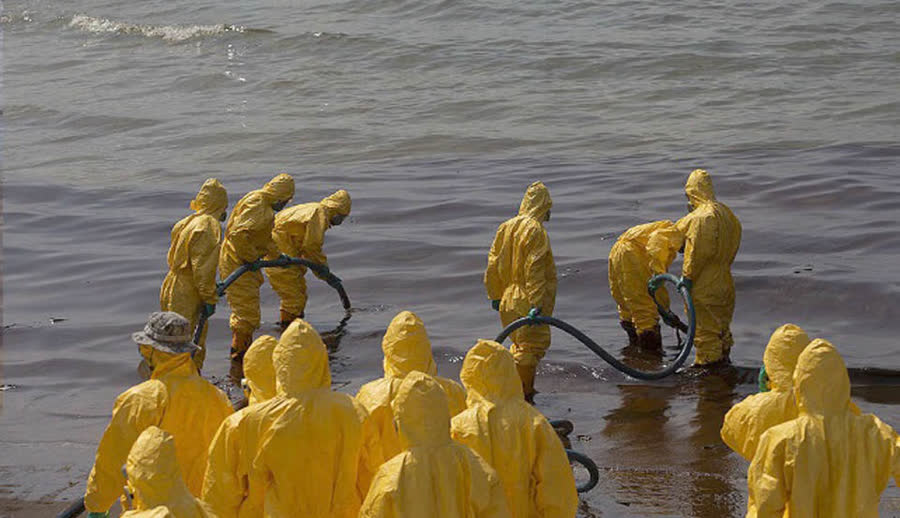
The rupture of a Thai Oil pipeline in Chon Buri province has raised concerns among marine experts at Chulalongkorn University’s Aquatic Resources Research Institute (ARRI). They fear that the oil spill could have serious consequences on corals and cause long-term effects.
Research by ARRI indicates that oil pollution can hinder a coral’s ability to generate new reproductive cells, causing what is called the “abortion effect.” Although marine environments can recover over time from these types of incidents, affected coral may not fully recover to health. The agency recommends close monitoring and the use of advanced scanning technology to assess the long-term impact on marine life.
Authorities assess impact of Chonburi oil leak
Researchers from Chulalongkorn University have already begun collecting samples from the oil-contaminated area, and a metagenomic study will be conducted to evaluate the effects on marine animals.
The recent oil spill in Chon Buri follows similar incidents in January and July in Rayong. The Department of Marine and Coastal Resources (DMCR) reported the discovery of a thin layer of oil near the pipeline, but at the moment there is no evidence of oil contamination on the coral.
Research by ARRI indicates that oil pollution can hinder a coral’s ability to generate new reproductive cells.
Several authorities, including the Chon Buri Marine and Coastal Resources Management Office 2, the Upper Eastern Gulf of Thailand Marine and Coastal Resources Research Center and the Pollution Control Department, carried out underwater drone inspections. . The results of the study have so far revealed a thin layer of oil near the island of Khang Khao.

Source: https://reporteasia.com/destacado/2023/09/09/la-rotura-de-un-oleoducto-tailandes-preocupa-por-la-salud-de-los-corales/

